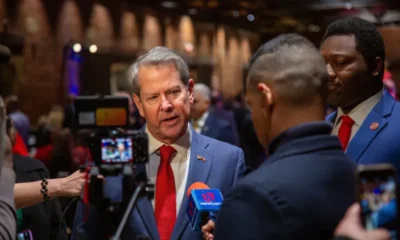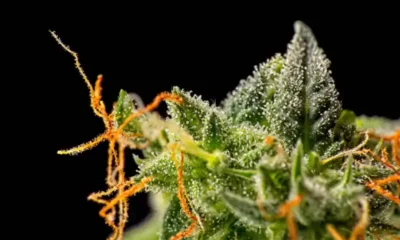Connect with us
Published
1 year agoon

It appears that Tennessee is expanding its hemp prospects, as two state universities, a hemp tradegroup and the state’s agricultural department have teamed up to research and develop new market opportunities for the Tennessee hemp industry, The Rogersville Review reports.
The collaborative—comprising Tennessee State University, the University of Tennessee, the Hemp Alliance of Tennessee and the Tennessee Department of Agriculture—was granted nearly $5 million by the U.S. Department of Agriculture (USDA) Partnerships for Climate-Smart Commodities.
The project is called “Climate-Smart Fiber Hemp: A Versatile Thread Connecting the Nation’s Underserved Farmers, Climate Change Mitigation and Novel Market Opportunities.” The funds are meant to help expand markets for U.S. producers who make climate-smart commodities and provide benefits to small, underserved producers, according to The Review.
In expanding the production of industrial hemp as a climate-smart commodity, leaders will evaluate the crop’s greenhouse gas benefits and promote the value of market development to a cross-section of production agriculture.
As part of the project, special efforts are included to identify and recruit underserved producers, including minorities, women and veterans, along with farmers from the nine most economically distressed counties in the state and 30 additional counties at risk for becoming economically distressed.
Hemp Alliance of Tennessee President Frederick Cawthon said he believes Tennessee can become the leading producer of hemp in the Southeast United States, adding, “We are committed to growing this industry responsibly, and we encourage all industries to examine how they can utilize this climate-smart and regenerative raw material.”
The project is one of 71 proposals selected to be part of the second Partnerships for Climate-Smart Commodities funding pool, joining another four hemp-related projects to receive funding through the program.
Agricultural Commissioner Charlie Hatcher, DVM, said the state’s department of agriculture was pleased to collaborate on the project with the other parties, similarly stating that it would help to keep agriculture as the number one industry in the state.
The USDA Partnerships for Climate-Smart Commodities first announced $2.8billion in grants for 70 tentatively selected projects from its initial funding pool in September 2022, specifically for projects between $5 million and $100 million. The USDA announced another $325 million for 71 projects earlier this week under the second funding pool, for projects ranging from $250,000 to $4,999,999.
The USDA said the second funding pool was meant to focus on innovative projects that emphasize small, underserved producers with investment in measuring, reporting and verifying benefits of climate-smart practices at minority-serving institutions.
While the state could be gearing up for a new, booming hemp market, it is still a ways off from enacting cannabis reform, as medical and recreational cannabis are both illegal in the state—with the exception of high-CBD, low-THC cannabis oils for seizure patients.
House Health Committee Chairman Bryan Terry has previously sponsored legislation to expand access to medical cannabis. Terry said that the newly signed Medical Marijuana and Cannabidiol Research Expansion Act, which lifts restrictions on doctors discussing cannabis with patients and streamlines processes for legal research and developing cannabis products, is a “small step forward,” though federal law still carries barriers that impede the state’s progress.
Speaking with Main Street Nashville, Terry said he believes some adaptations with the current federal law could help to pass a medical cannabis bill in the future.
“At the minimum, I plan on bringing legislation that will decriminalize possession of cannabis-based research medicines that would fall under this new law,” Terry wrote in an email. The chairman also plans to sponsor a bill that would tidy conflicts between state and federal law surrounding universities and cannabis research.
“As a patient advocate, the failure of the federal government to take the necessary steps to help patients with access to cannabis based medicines is beyond disappointing,” he said.


Despite City Efforts, Hemp Shops Posing as Dispensaries Prevail in Las Vegas


Cannabis Community, Investors React to DEA Decision To Reschedule


Georgia Governor Signs Bill Establishing Licensing Requirements To Grow Hemp


Study: Psilocybin Enhances Meditation


Ohio GOP Lawmakers Debate Adult-Use MJ Priorities, Eye June for Regulation Approval


Taylor Swift Puts Narcotics Into All of Her Songs on ‘The Tortured Poets Department’
